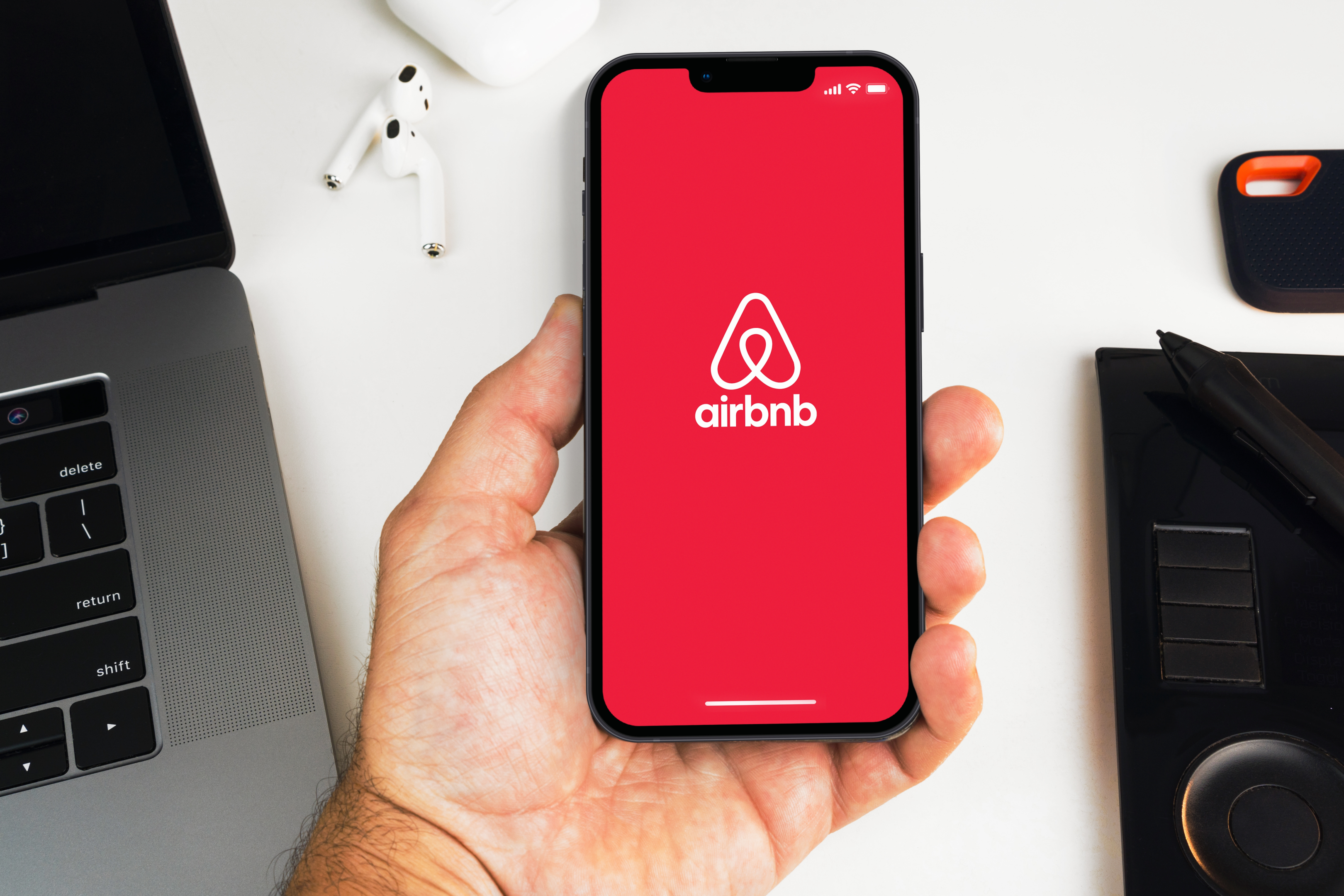Beyond Just Hosting: The Comprehensive Blueprint to Airbnb Success

Ever wondered how Airbnb turned from a simple idea in San Francisco to a global game-changer in the travel industry? It’s not just about finding a spot to crash anymore. From air mattresses in shared spaces to swanky vacation homes, Airbnb’s got it all. And for those on the other side, the property owners and hosts, it’s become a whole new way to earn and connect with travelers from around the world.
This guide aims to answer the biggest but most basic question: How does Airbnb work? If you’re in the short-term rental biz or thinking about diving in, we’ll break down the magic, from setting up a killer listing to understanding those service fees.

The Airbnb Business Model
The Peer-to-Peer Model
Airbnb operates on a peer-to-peer model, connecting individuals who want to rent out their homes (or parts of them) with those seeking accommodations in specific locales. This model has transformed the hospitality industry. Instead of solely relying on traditional hotels, travelers can now opt for a more personalized experience, staying in local homes, apartments, or even unique spaces like houseboats. The idea is simple: local hosts can earn extra income by renting out their spaces, while guests get a more authentic and often cost-effective stay.
Revenue Streams
- Booking Fees: Airbnb charges guests a service fee for each booking. This fee, which is a percentage of the booking subtotal, covers the cost of running the platform and providing support.
- Host Fees: Hosts are charged a fee, typically around 3% of the total booking amount. This fee helps cover the cost of processing guest payments and comes out of the host’s payout.
- Experiences: Beyond just accommodations, Airbnb introduced “Experiences” where hosts can offer unique activities like cooking classes, tours, or concerts in their local area. This has become another significant revenue stream for Airbnb.
Trust and Safety Measures
- Host Guarantees: Airbnb provides a “Host Guarantee” that offers protection for up to $1,000,000 in damages to a host’s property. This is in place to give hosts peace of mind when opening up their homes to guests.
- Insurance: In addition to the Host Guarantee, Airbnb offers “AirCover for Hosts,” which includes liability insurance to protect hosts from claims of bodily injury or property damage.
- Guest Verification: To ensure the safety of its community, Airbnb has a guest identity verification process. This helps hosts know a bit more about who they’re hosting, and guests can also view reviews from other hosts about their potential guests.
By understanding the intricacies of how Airbnb operates, both hosts and guests can make the most of their experiences on the platform. Whether you’re looking to list your property or find a unique place to stay, knowing the ins and outs of Airbnb’s business model can help you navigate the platform more effectively.
The Booking Process: A Step-by-Step Guide
When it comes to how bookings through Airbnb work, it’s pretty straightforward. We break it down according to the experience of the Airbnb host and Airbnb guests.
For Guests:
- Creating an account and setting up a profile: Begin by signing up on the platform, providing the necessary personal details, and setting up a profile that reflects your preferences and requirements as a traveler.
- Searching for listings based on preferences: Once your profile is set up, you can search for listings in your desired location, filtering results based on your preferences such as type of accommodation, amenities, price range, and more.
- Reading reviews and communicating with hosts: Before making a reservation, it’s essential to read reviews from previous guests to get a sense of the accommodation and the host. You can also communicate directly with hosts to ask questions or clarify any doubts.
- Making a reservation and payment process: Once you’ve chosen a listing, you can proceed to make a reservation. The payment process is secure and straightforward, with various payment methods available.
- After-stay reviews and feedback: After your stay, it’s good practice to leave a review for the host and the property. This helps future guests in their decision-making and also provides feedback to hosts on areas of improvement.
For Hosts:
- Listing a property: tips for photos, descriptions, and pricing: When listing your property on platforms like Airbnb, it’s crucial to provide accurate and enticing descriptions. High-quality photos can make a significant difference in attracting potential guests. Ensure you capture the essence of your property, showcasing its best features. Pricing should be competitive, considering factors like location, amenities, and local demand.
- Setting availability and house rules: Clearly define when your property is available for bookings. Set clear house rules, such as check-in/check-out times, pet policies, smoking rules, and any other specific guidelines you want your guests to follow.
- Communicating with potential guests: Open and clear communication is key. Respond to inquiries promptly and provide any necessary information that can help guests in their decision-making.
- Preparing for guest arrival and ensuring a smooth check-in/check-out process: Ensure the property is clean and ready for your guests. Provide clear instructions for check-in, especially if you won’t be there in person. Similarly, have a smooth check-out process in place, making it convenient for your guests.
- Handling feedback and reviews: After the guests’ stay, take the time to review their feedback. Positive reviews can boost your listing’s appeal, while constructive criticism can offer insights into areas of improvement.
By integrating the provided outline with insights from the sources, this comprehensive guide offers a clear understanding of the booking process for both guests and hosts.
Benefits of Using Airbnb for Short-Term Rentals
-
Increased Visibility and Reach to a Global Audience
Airbnb operates in over 220 countries, making properties listed on the platform accessible to millions of potential guests from around the world. Whether you’re offering a cozy private room in San Francisco or a luxurious vacation home in a remote location, Airbnb ensures your listing gets the attention it deserves. With just a few clicks, travelers can discover unique holiday accommodations, from boutique hotels to serviced apartments, that they wouldn’t find in traditional hotels.
-
Flexibility in Pricing and Availability
One of the standout features of Airbnb is the flexibility it offers to hosts. Property owners can adjust their pricing based on demand, local events, or seasons. This dynamic pricing model ensures that hosts can maximize their earnings, especially during peak travel times. Additionally, hosts have complete control over their property’s availability, allowing them to choose when to rent out their space and for how long, be it for a single night or an extended stay.
-
Community Support and Resources for Hosts
Airbnb’s community is its backbone. Many hosts, from individual property owners to those managing multiple vacation rentals, benefit from the shared experiences and insights of the Airbnb community. The platform offers a plethora of resources, from forums where hosts can exchange tips to detailed guides on how to enhance the guest experience. Whether you’re a newbie wondering how Airbnb works or a seasoned host looking to increase direct bookings, there’s a wealth of knowledge available at your fingertips.
-
Trust and Safety Features for Both Hosts and Guests
Trust is paramount in the sharing economy, and Airbnb has invested heavily in features that foster a safe environment for both hosts and guests. For hosts, there’s the peace of mind that comes with the Airbnb Host Guarantee, which offers protection against potential property damage. On the other hand, guests benefit from features like guest identity verification, ensuring they’re dealing with genuine hosts. Reviews from previous guests also play a crucial role, allowing both parties to make informed decisions. Moreover, Airbnb’s secure online platform handles all transactions, ensuring that both guests and hosts are protected from potential fraud.
In the ever-evolving landscape of the travel industry, Airbnb stands out as a beacon for those seeking unique cultural experiences beyond the confines of a hotel room. Its emphasis on community, flexibility, and safety makes it a preferred choice for many in the short-term rental industry. Whether you’re a guest seeking an authentic local experience or a host aiming to share your space with travelers from around the world, Airbnb offers a platform that bridges the gap, ensuring memorable experiences for all involved.
Challenges and Considerations for Hosts
-
Competition and Market Saturation
As Airbnb’s popularity has soared, so has the number of listings on the platform. In popular holiday accommodation destinations, the sheer volume of vacation rentals can lead to fierce competition. Whether it’s private rooms in bustling cities or entire vacation homes in serene locales, hosts on Airbnb must ensure their listings stand out. Factors like property location, unique amenities, and the overall guest experience play a crucial role in attracting potential guests to one’s Airbnb listing over another.
-
Local Regulations and Licensing Requirements
Not every city or country views the vacation rental company model in the same light. Many places have specific regulations and licensing requirements for short-term rentals. Before listing a property on the Airbnb website, hosts must familiarize themselves with local laws. This might involve obtaining permits, paying local taxes, or adhering to certain safety standards. Ignoring these can lead to hefty fines or even the delisting of Airbnb properties.
-
Handling Difficult Guests and Potential Property Damage
While most Airbnb guests are respectful and considerate, hosts occasionally encounter challenging situations. This could range from guests breaking house rules to accidental property damage. While Airbnb offers some protection, like the Host Guarantee, it’s essential for hosts to have clear guidelines, security deposits, and, if possible, their own insurance to cover potential damages. Communication is also key; setting clear expectations from the outset can prevent many misunderstandings.
-
Importance of Maintaining High Ratings and Reviews
In the world of vacation rentals, reviews can make or break an Airbnb listing. Whether it’s a cozy private room or a sprawling vacation rental, positive feedback can significantly boost a property’s appeal. Conversely, negative reviews can deter potential guests. Airbnb hosts must prioritize the guest experience, from the initial booking inquiry to the check-out process. Quick responses, cleanliness, and added touches can go a long way in ensuring guests leave glowing reviews.
While platforms like Airbnb offer a lucrative opportunity for individuals to monetize their spaces, it’s not without its challenges. From understanding the intricacies of service fees to navigating the competitive landscape of hotel rooms and vacation rentals, Airbnb hosts must be proactive, informed, and always focused on delivering the best experience for their guests.
Future Trends and Predictions for Airbnb
As the world continues to evolve, so does the realm of travel and accommodation. Airbnb, a pioneer in the sharing economy, has consistently showcased its ability to adapt and innovate. As we gaze into the horizon, several trends and predictions emerge that could shape the future trajectory of this vacation rental giant.
Technological Advancements and Integrations
The digital age is in full swing, and Airbnb is poised to leverage the latest in technology to enhance the user experience. We can expect more sophisticated algorithms to better match guests with their ideal holiday accommodation. Additionally, the integration of augmented reality (AR) and virtual reality (VR) could revolutionize property tours, allowing potential guests to “experience” a space before booking. Smart home integrations could also play a role, offering hosts the ability to provide guests with a more personalized and convenient stay, from voice-activated room controls to AI-driven local area recommendations.
Expansion into New Markets and Industries
Airbnb’s foray into “Experiences” was just the beginning. The platform is likely to delve deeper into the travel industry, offering more comprehensive travel packages that might include transportation, dining, and local activities. There’s also potential for Airbnb to tap into longer-term rentals or even partner with boutique hotels and other hospitality entities, blurring the lines between traditional hotel stays and the unique offerings of individual Airbnb hosts.
Potential Challenges and Opportunities for Hosts
As Airbnb continues to grow, hosts may face increased competition, not just from other local hosts but from professional hospitality entities entering the platform. However, this also presents an opportunity for hosts to differentiate their listings, offering unique cultural experiences or niche accommodations that larger entities can’t replicate. Additionally, as Airbnb expands its reach, hosts in previously less-traveled areas might see a surge in interest, opening up new markets and opportunities.
In essence, the future for Airbnb is rife with possibilities. While challenges are inevitable, the platform’s commitment to innovation, community, and authentic travel experiences positions it well to remain a dominant force in the global travel industry.

Final Thoughts
In the dynamic world of travel and accommodation, understanding the intricacies of platforms like Airbnb is paramount for anyone in the short-term rental industry. From the peer-to-peer model that started it all to the evolving trends that promise to shape its future, Airbnb’s impact is undeniable. For hosts, this isn’t just about listing a property; it’s about tapping into a global community, maximizing earnings, and offering travelers a unique slice of the world.
To truly thrive, hosts must leverage the myriad features Airbnb offers. Staying updated with industry trends, adapting to technological advancements, and understanding guest preferences can make the difference between an average host and an Airbnb superstar.
And speaking of leveraging tools for success, have you tried out iGMS? It’s a game-changer for hosts aiming to elevate their Airbnb game. Here’s a quick look at what iGMS offers:
- Automated Messaging: Keep your communication game strong with timely and automated responses.
- Multi-Calendar Management: Handle multiple listings with ease, ensuring you never double-book or miss out on potential guests.
- Performance Analytics: Dive deep into your hosting metrics to understand what’s working and where there’s room for improvement.
- Team Management: Collaborate seamlessly with your team, from cleaners to co-hosts, ensuring every guest has a stellar experience.
In the ever-evolving landscape of short-term rentals, knowledge is power. Equip yourself with the right tools, stay curious, and here’s to your continued success in the world of Airbnb and beyond!






![Your Monthly iGMS Roundup [February 2020]](/content/images/size/w600/wordpress/2020/02/igms-roundup-feb-2020-cover.png)

